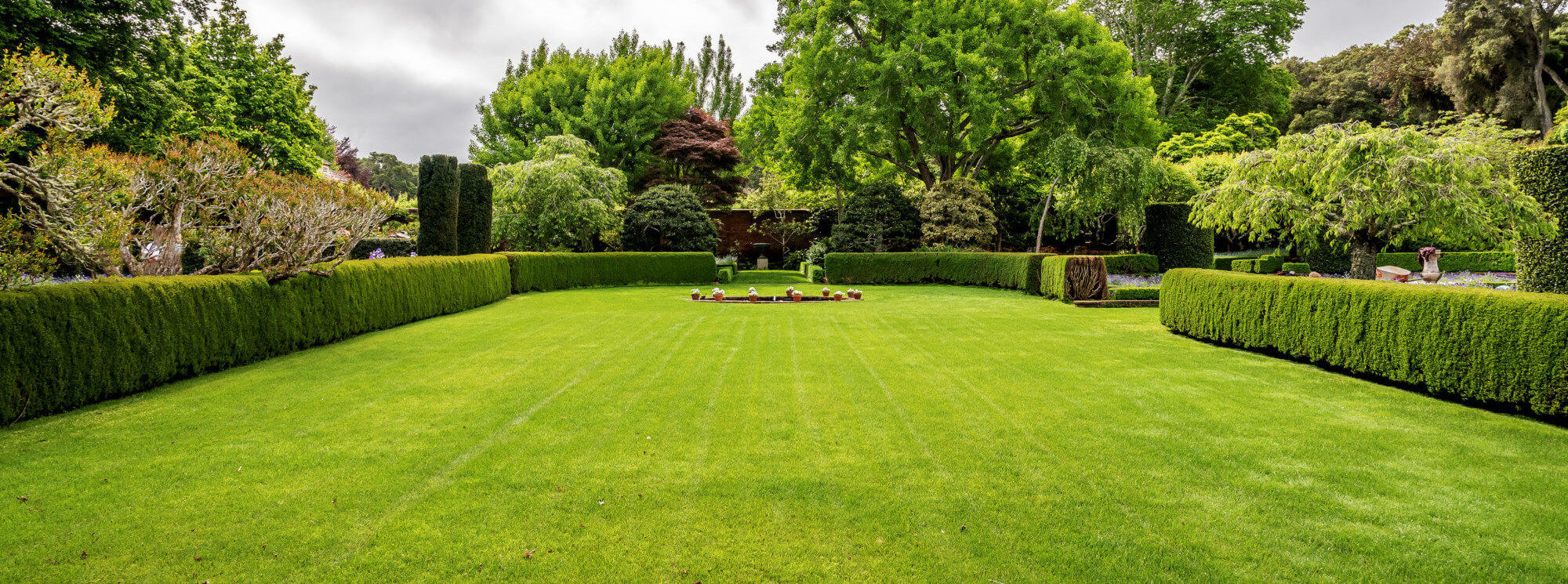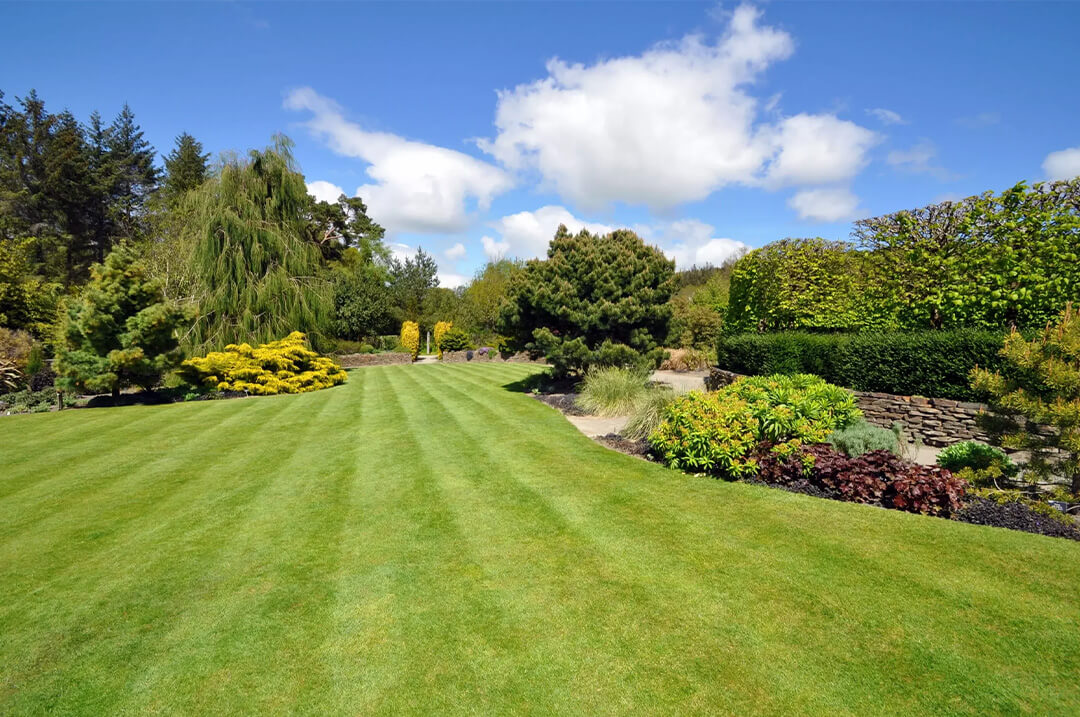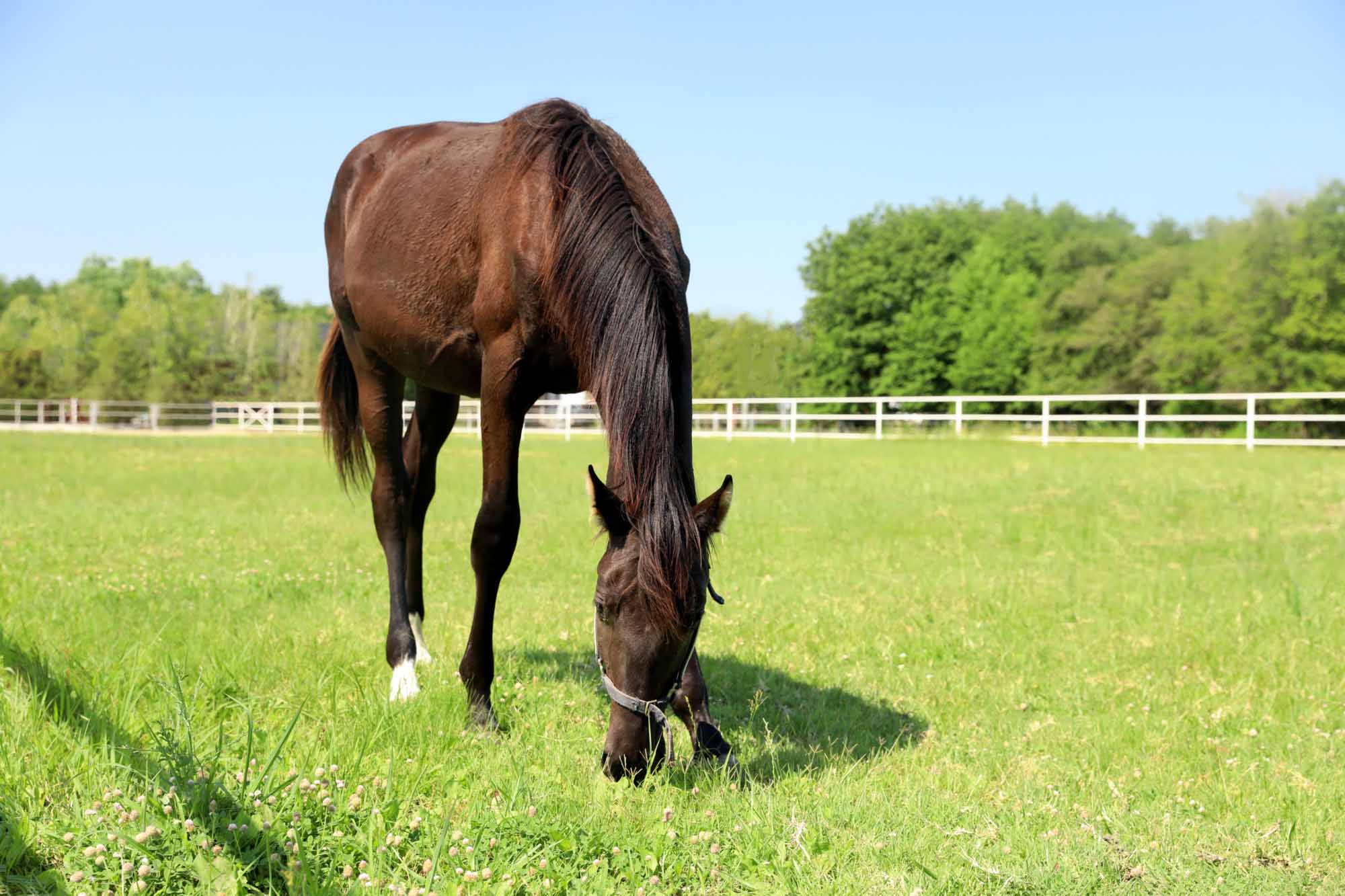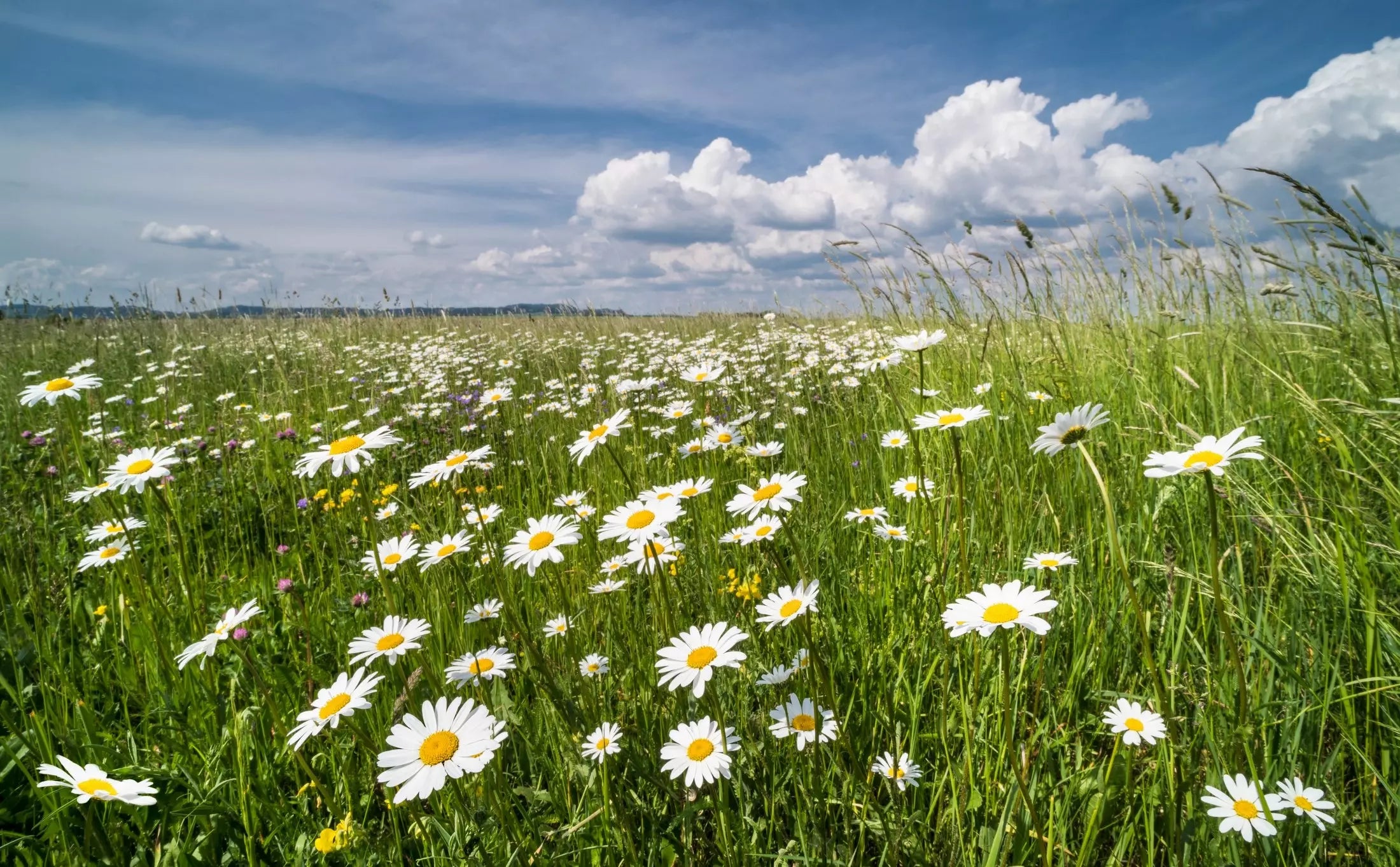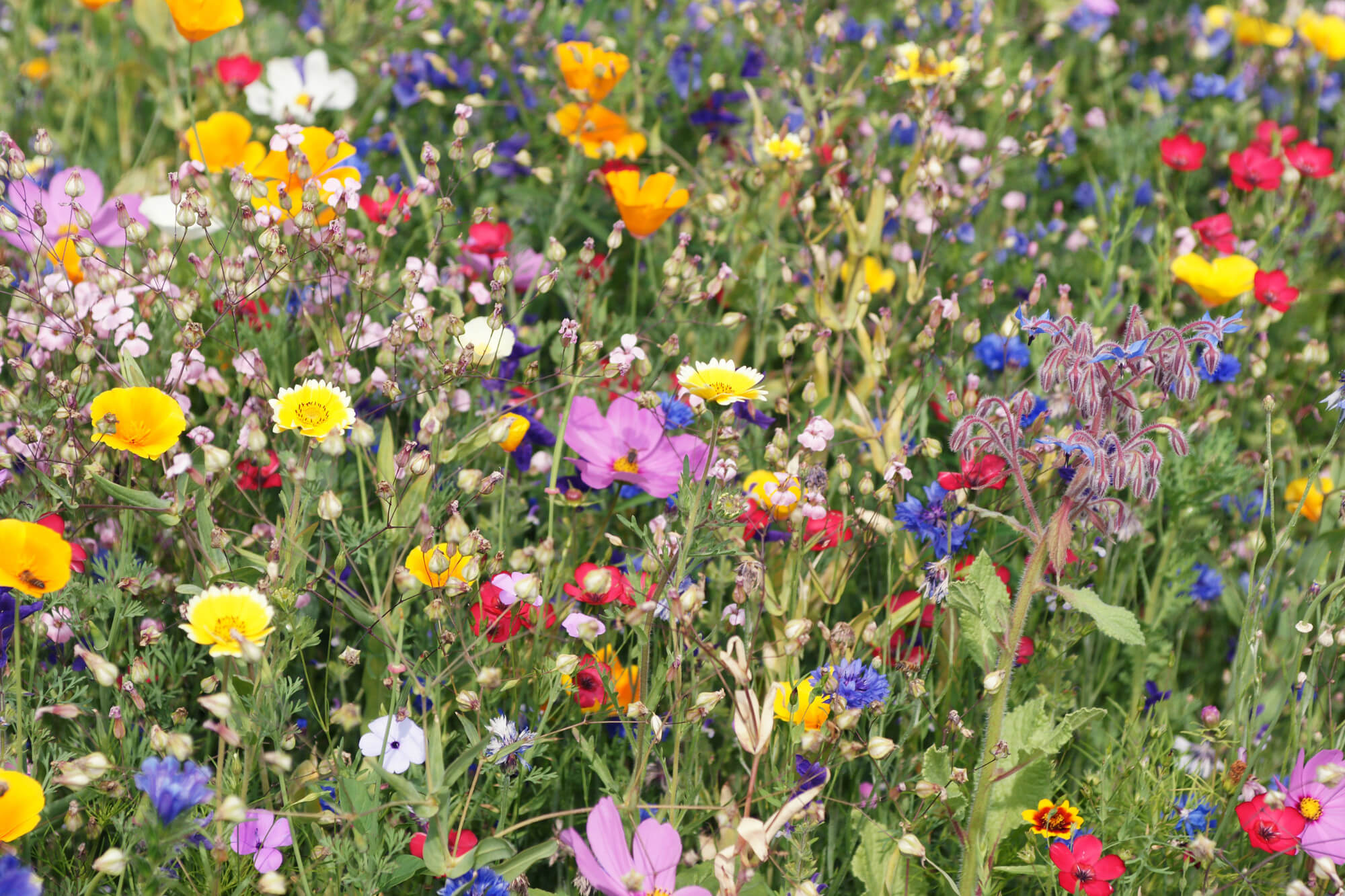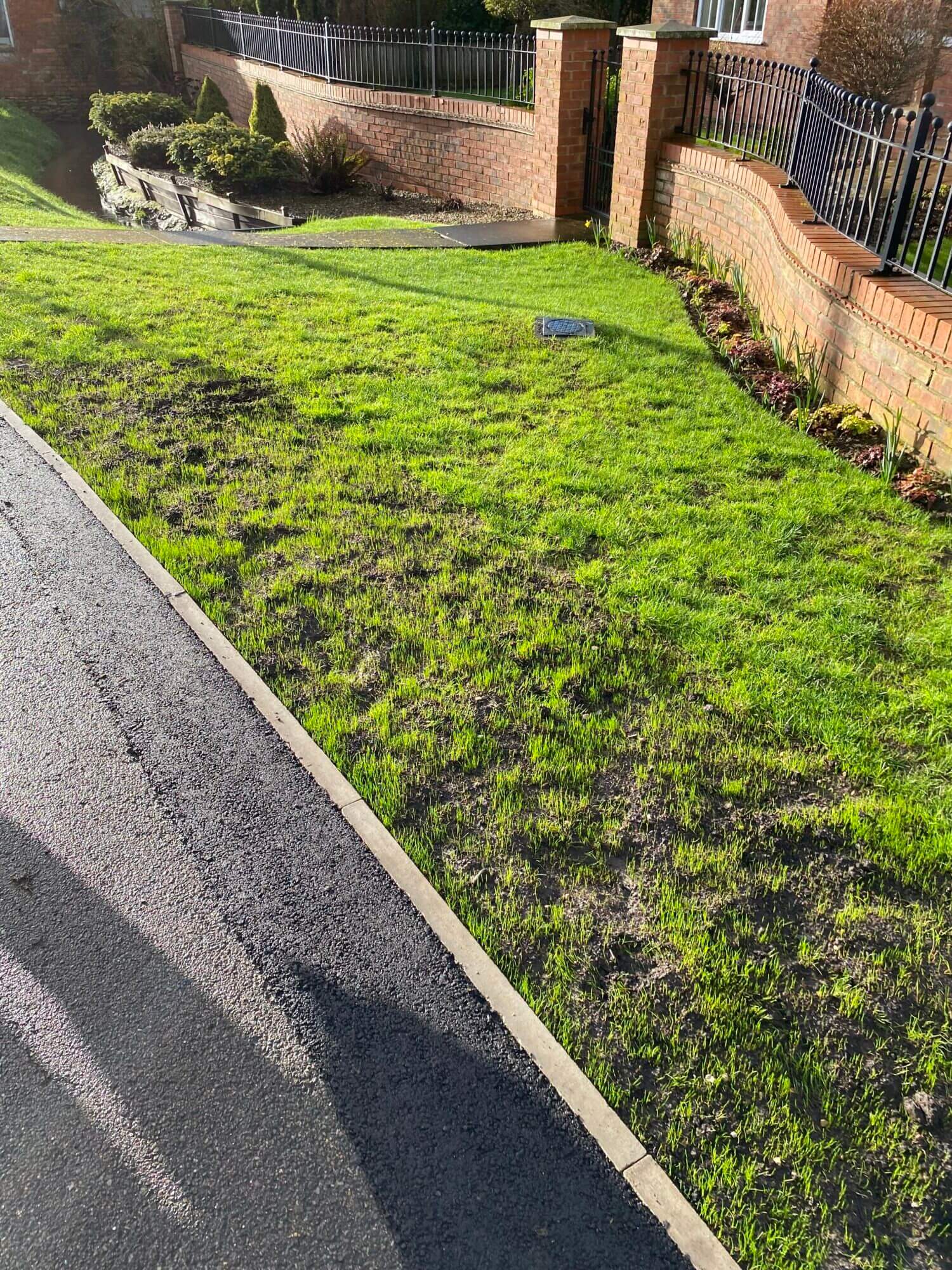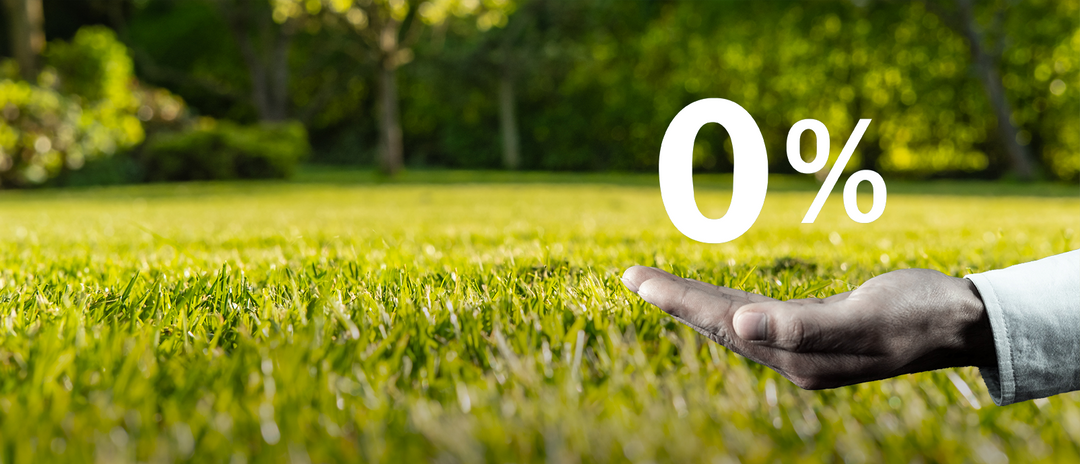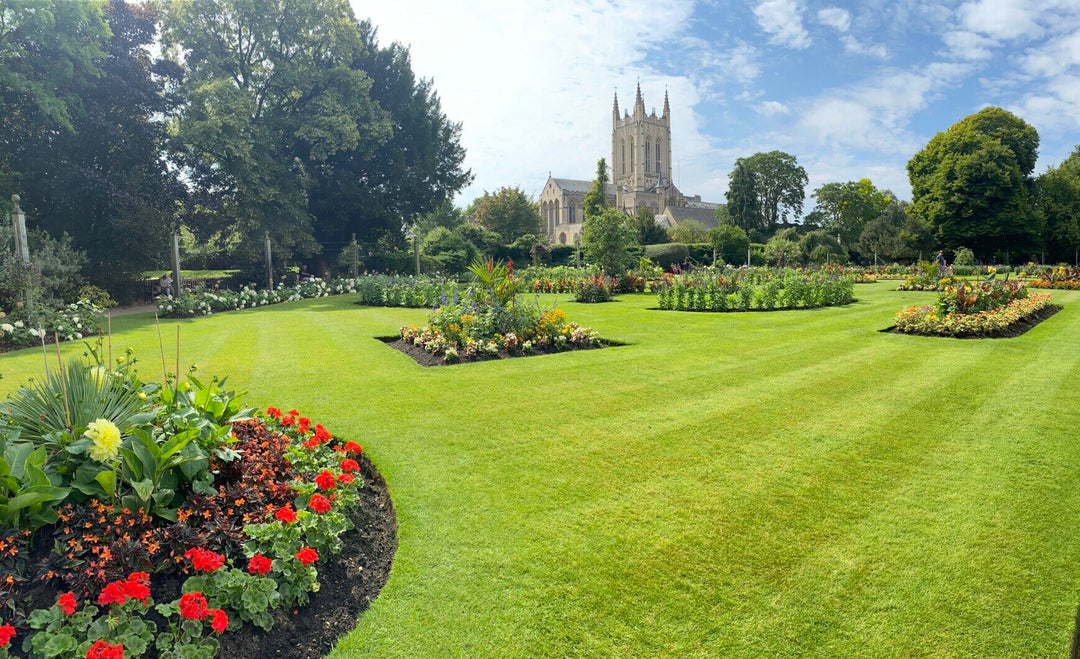We are now in late February, but is it too early to sow grass seed? The daffodils are out, the trees are beginning to show their buds and you are no doubt eager to get out into your garden and onto your lawn. There are several things that can affect lawn seed germination rate and different grass species are able to germinate at different times of the year. In this article we will dive a little bit deeper into seed germination and answer the question as to whether it is OK to sow grass seed in February.
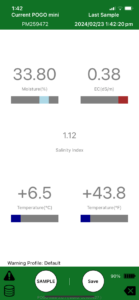 Soil temperature reading taken with a Pogo soil probe.[/caption]
[caption id="attachment_1851" align="aligncenter" width="300"]
Soil temperature reading taken with a Pogo soil probe.[/caption]
[caption id="attachment_1851" align="aligncenter" width="300"]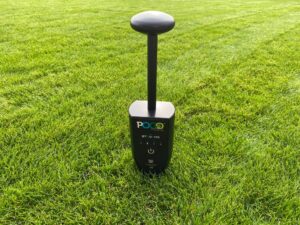 POGO Soil Moisture and Temperature Probe[/caption]
Three different readings with a Pogo moisture probe give an average soil temperature reading of 6.9 degrees Celcius. So this is fractionally below the required germination temperature for Perennial Ryegrass. These readings were taken at 1pm, so they will drop into the evening and through to the morning. At these levels Perennial Ryegrass will certainly germinate, but it just might take a little bit longer than usual. The photo below shows an area that was sown with grass seed following some road works in the third week of January, it has germinated fine but it has taken 5 weeks to get this far.
[caption id="attachment_3322" align="aligncenter" width="225"]
POGO Soil Moisture and Temperature Probe[/caption]
Three different readings with a Pogo moisture probe give an average soil temperature reading of 6.9 degrees Celcius. So this is fractionally below the required germination temperature for Perennial Ryegrass. These readings were taken at 1pm, so they will drop into the evening and through to the morning. At these levels Perennial Ryegrass will certainly germinate, but it just might take a little bit longer than usual. The photo below shows an area that was sown with grass seed following some road works in the third week of January, it has germinated fine but it has taken 5 weeks to get this far.
[caption id="attachment_3322" align="aligncenter" width="225"]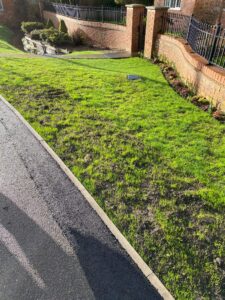 Grass seed germinating in February[/caption]
Other grass seed types will happily sit in the soil until the conditions are right for them to germinate. Grass seed germination is simply a result of a biological chemical reaction within the seed. Temperature serves as a catalyst in this reaction, increasing the speed of the reaction. If the temperature drops, so does the speed af the reactions and in turn the seed germination.
Grass seed germinating in February[/caption]
Other grass seed types will happily sit in the soil until the conditions are right for them to germinate. Grass seed germination is simply a result of a biological chemical reaction within the seed. Temperature serves as a catalyst in this reaction, increasing the speed of the reaction. If the temperature drops, so does the speed af the reactions and in turn the seed germination.
Temperatures for grass seed germination
When it comes to grass seed germination different types of grass have different requirements. The key thing for successful germination is the soil temperature and not just the air temperature. In the spring the conditions can be quite deceiving because although the air temperature can start to rise it is often the case the nighttime temperatures are still very low. This will keep the soil temperature low and can slow down seed germination. The weather conditions we tend to see now in the spring can pose a challenge if you are establishing a lawn from seed or repairing an existing lawn. Even by the time we reach mid - spring the weather conditions can still be warm in the day but cool at night. This is the reason why late autumn is a popular time to sow grass seed, as normally the soil temperatures are high. Some grass seed species will germinate better at lower soil temperatures. The below information covers the three main types of lawn seed used in the UK;- Perennial ryegrass: 7°C (with a germination period of 7-14 days)
- Red fescues: 11°C (with a germination period of 11-21 days)
- Bent: 15°C (with a germination period of 11-21 days)
 Soil temperature reading taken with a Pogo soil probe.[/caption]
[caption id="attachment_1851" align="aligncenter" width="300"]
Soil temperature reading taken with a Pogo soil probe.[/caption]
[caption id="attachment_1851" align="aligncenter" width="300"] POGO Soil Moisture and Temperature Probe[/caption]
Three different readings with a Pogo moisture probe give an average soil temperature reading of 6.9 degrees Celcius. So this is fractionally below the required germination temperature for Perennial Ryegrass. These readings were taken at 1pm, so they will drop into the evening and through to the morning. At these levels Perennial Ryegrass will certainly germinate, but it just might take a little bit longer than usual. The photo below shows an area that was sown with grass seed following some road works in the third week of January, it has germinated fine but it has taken 5 weeks to get this far.
[caption id="attachment_3322" align="aligncenter" width="225"]
POGO Soil Moisture and Temperature Probe[/caption]
Three different readings with a Pogo moisture probe give an average soil temperature reading of 6.9 degrees Celcius. So this is fractionally below the required germination temperature for Perennial Ryegrass. These readings were taken at 1pm, so they will drop into the evening and through to the morning. At these levels Perennial Ryegrass will certainly germinate, but it just might take a little bit longer than usual. The photo below shows an area that was sown with grass seed following some road works in the third week of January, it has germinated fine but it has taken 5 weeks to get this far.
[caption id="attachment_3322" align="aligncenter" width="225"] Grass seed germinating in February[/caption]
Other grass seed types will happily sit in the soil until the conditions are right for them to germinate. Grass seed germination is simply a result of a biological chemical reaction within the seed. Temperature serves as a catalyst in this reaction, increasing the speed of the reaction. If the temperature drops, so does the speed af the reactions and in turn the seed germination.
Grass seed germinating in February[/caption]
Other grass seed types will happily sit in the soil until the conditions are right for them to germinate. Grass seed germination is simply a result of a biological chemical reaction within the seed. Temperature serves as a catalyst in this reaction, increasing the speed of the reaction. If the temperature drops, so does the speed af the reactions and in turn the seed germination.




